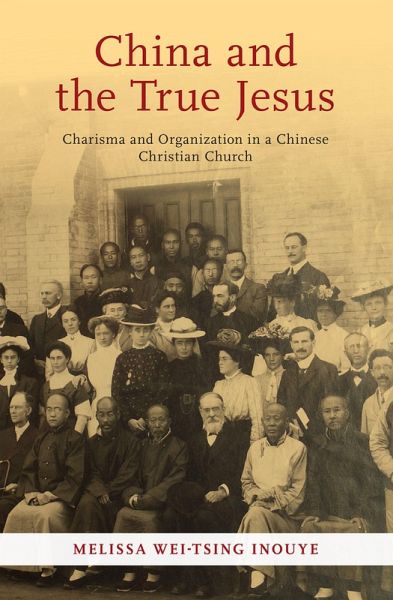
China and the True Jesus (eBook, PDF)
Charisma and Organization in a Chinese Christian Church
Versandkostenfrei!
Sofort per Download lieferbar
16,95 €
inkl. MwSt.
Weitere Ausgaben:

PAYBACK Punkte
8 °P sammeln!
In 1917, the Beijing silk merchant Wei Enbo's vision of Jesus sparked a religious revival, characterized by healings, exorcisms, tongues-speaking, and, most provocatively, a call for a return to authentic Christianity that challenged the Western missionary establishment in China. This revival gave rise to the True Jesus Church, China's first major native denomination. The church was one of the earliest Chinese expressions of the twentieth century charismatic and Pentecostal tradition which is now the dominant mode of twenty-first century Chinese Christianity. To understand the faith of million...
In 1917, the Beijing silk merchant Wei Enbo's vision of Jesus sparked a religious revival, characterized by healings, exorcisms, tongues-speaking, and, most provocatively, a call for a return to authentic Christianity that challenged the Western missionary establishment in China. This revival gave rise to the True Jesus Church, China's first major native denomination. The church was one of the earliest Chinese expressions of the twentieth century charismatic and Pentecostal tradition which is now the dominant mode of twenty-first century Chinese Christianity. To understand the faith of millions of Chinese Christians today, we must understand how this particular form of Chinese community took root and flourished even throughout the wrenching changes and dislocations of the past century. The church's history links together key themes in modern Chinese social history, such as longstanding cultural exchange between China and the West, imperialism and globalization, game-changing advances in transport and communications technology, and the relationship between religious movements and the state in the late Qing (circa 1850-1911), Republican (1912-1949), and Communist (1950-present-day) eras. Vivid storytelling highlights shifts and tensions within Chinese society on a human scale. How did mounting foreign incursions and domestic crises pave the way for Wei Enbo, a rural farmhand, to become a wealthy merchant in the early 1900s? Why did women in the 1920s and 30s, such as an orphaned girl named Yang Zhendao, devote themselves so wholeheartedly to a patriarchal religious system? What kinds of pressures induced church leaders in a meeting in the 1950s to agree that "Comrade Stalin" had saved many more people than Jesus? This book tells the striking but also familiar tale of the promise and peril attending the collective pursuit of the extraordinary-how individuals within the True Jesus Church in China over the past century have sought to muster divine and human resources to transform their world.
Dieser Download kann aus rechtlichen Gründen nur mit Rechnungsadresse in A, B, BG, CY, CZ, D, DK, EW, E, FIN, F, GR, HR, H, IRL, I, LT, L, LR, M, NL, PL, P, R, S, SLO, SK ausgeliefert werden.













